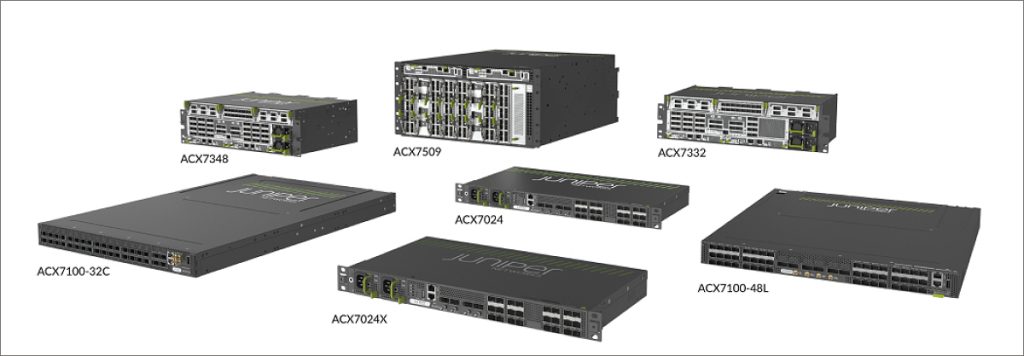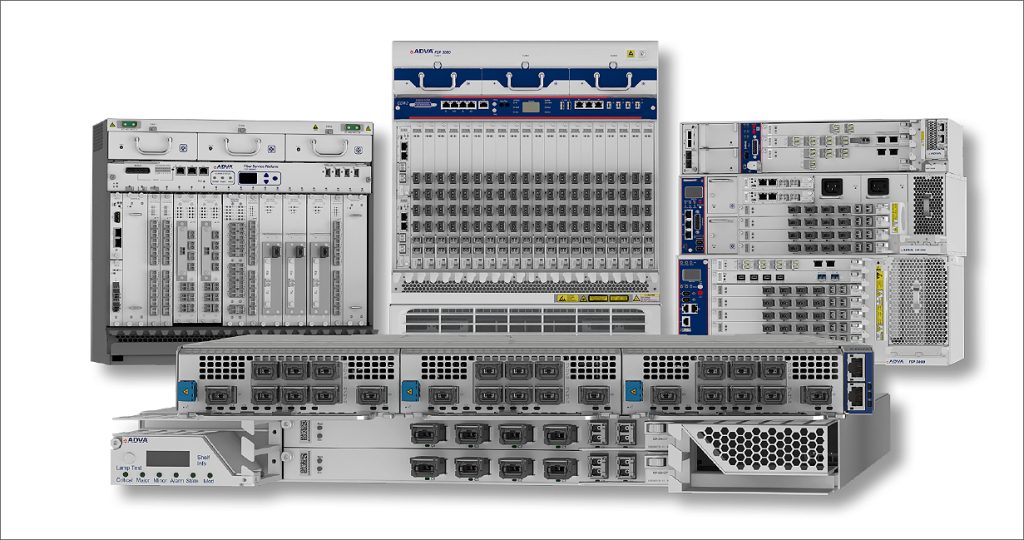As the demand for fast Internet surged in Cape Town, the third-largest fibre-to-the-home provider in South Africa, MetroFibre turned to NEC XON, which implemented Juniper Network’s ACX Universal Metro Routers and Adtran FSP 3000 scalable optical transport, delivering a 28 Terabits network capacity to meet demand.
As the demand for fast and reliable Internet surged in Cape Town, networking infrastructure services provider MetroFibre Networx faced a bandwidth crunch that led to resiliency issues. In response to the growing demand, MetroFibre had to rapidly deploy fibre infrastructure in Cape Town’s burgeoning business hubs. The fibre network operator aimed to complete a 100km network ring and route by the end of November 2023.
In the initial phase, approximately 4,000 businesses in the main business hubs of Montagu Gardens, Brackenfell, Rondebosch, Paarden Island, Stikland, Epping, Belville, Tyger Valley, and the City Bowl would gain access to the MetroFibre network. Metrofibre serves 350,000 homes and businesses.
MetroFibre sought a solution that could meet customers’ expectations and support advanced technologies such as Ethernet VPN and Segment Routing. A more stable and efficient network would also free up engineering resources from service configuration and other manual operations for more strategic work.
In addressing these challenges, the third-largest fibre-to-the-home provider in South Africa, MetroFibre turned to NEC XON in Cape Town. NEC XON has now implemented Juniper’s ACX line of Universal Metro Routers, providing reliable network services to ISPs, businesses, residential properties, and consumers in the region.
The network infrastructure expansion aligns with the escalating demand for connectivity from businesses establishing their operations in the city of Cape Town. This includes multinational corporations, financial services providers, insurers, contact centres, cloud and technology providers, manufacturers, and others.
NEC XON is an African integrator of ICT solutions and part of NEC, a Japanese global company. NEC XON has operated in Africa since 1963 and delivers communications, energy, safety, security, and digital solutions. NEC XON operates in 54 African countries and has a footprint in 16 of them. Its regional headquarters are located in South, East, and West Africa.

Technology components
By leveraging best-of-breed products and solutions, coupled with local spares and maintenance capability, MetroFibre and NEC XON joined forces to address the connectivity challenge. MetroFibre clarified their requirements, and NEC XON planned and dimensioned a scalable solution to accommodate future growth. The networking infrastructure is a combination of ADVA and Juniper Networks equipment.
“NEC XON looked at the requirement from MetroFibre, sat down and designed a complete solution considering MetroFibre’s specific use cases and long term view of growth potential in the Cape,” according to Jurie Cordier, Account Executive, NEC XON.
NEC XON planned and delivered a dense wavelength-division multiplexing network, boasting a huge capacity of over 28 Terabits. The infrastructure was designed to cater to the needs of enterprise customers, and is now owned by MetroFibre. The utilisation of Adtran technology facilitated flexible delivery options for customers, offering a range from 1 Gigabit to 200 Gigabits full Internet and fibre channel access, contributing to a total network capacity exceeding 24 Terabits.
According to a definition posted by TechTarget, dense wavelength-division multiplexing is an optical fibre multiplexing technology that is used to increase the bandwidth of existing fibre networks. It combines data signals from different sources over a single pair of optical fibre, while maintaining complete separation of the data streams.
A separate light wavelength carries each signal, and the optical fibre is able to accommodate up to 80 different wavelengths. Each wavelength is about 0.8 nanometre wide. Since data is supported on distinct wavelength bands, the channels do not interfere with each other. This approach helps maintain data integrity and enables security partitioning and independent tenants in the same data centre.
Dense wavelength-division multiplexing is popular with telecommunications and cable companies and part of the core networks. It is suitable for anyone running densely populated data centres, such as hyperscale cloud service providers operating infrastructure as a service or colocation providers with dense multi-tenant spaces. Dense wavelength-division multiplexing was developed to multiply the capacity of a single fibre.
Fiber optic cables are now the backbone of carrier networks and dense wavelength-division multiplexing enables enormous amounts of data to traverse a single network link by creating multiple virtual fibres, significantly multiplying the capacity of the physical medium.

Design and implementation
According to Cordier, NEC XON deployed a carrier network that is flexible and easy to execute for end customers. MetroFibre can now supply scalable bandwidth to end customers much faster, even at bigger bandwidth speeds, while maintaining low latency, high throughput and high availability, all very important for South African customers.
The high speed, high capacity, low latency network links all major nodes in Cape Town and enables MetroFibre to service everyone from small clients to big fintech who need to scale up to very large bandwidths. A key factor was that there is a single trench policy for all services in Cape Town. NEC XON therefore built a diverse network route to ensure safety and ease of access.
The comprehensive approach included planning and rollout of the solution. From the initial design phase to after-sales support, the system has been handed over to MetroFibre for ongoing management. This network ensures low latency and end-to-end encryption capabilities.
Cape Town has become a preferred homebase for global hyper-scaler cloud providers, further expanding their presence in the region. Leveraging globally compliant Carrier Ethernet 3.0 network, MetroFibre delivers on the most stringent service level agreements with high resiliency, ultra-low latency, and carrier-grade connectivity to meet the sophisticated needs of businesses.
NEC XON has a long-standing relationship with MetroFibre, with a skilled, implementation team. From design to implementation and post-implementation support, MetroFibre enjoys in-city access to capacity from the NEC XON NOC and extensive support services, with quick turnaround times on support.
Benefits and compliance
Juniper Network’s based solution from NEC XON delivers the benefits that MetroFibre needs to provide to its clients: reliability, scalability, security, performance, flexibility, and manageability. Networks should be designed with tools and protocols that allow for easy management, diagnostics, and troubleshooting, featuring user-friendly interfaces for network administrators.
A significant differentiator is MetroFibre’s diverse network in Cape Town, where routes are not shared with other fibre network operators. This unique approach ensures true route and carrier diversity for customers, offering reliability and resiliency.
Unlike fibre network operators that share the same route, MetroFibre’s network is not susceptible to potential disruptions experienced by others. In situations where downtime can be more than an inconvenience and potentially catastrophic for businesses, a diverse and redundant fibre connectivity solution becomes preferable.
Adds Gary Webster, Head of Wholesale, MetroFibre, “Our MEF 3.0 Carrier Ethernet enterprise offerings are equipped with high service level agreements, specifically designed to meet business needs. In contrast, the majority of current fibre deployments in Cape Town are GPON-based and not suited for the demands of large commercial operations. Additionally, all MetroFibre Points of Presence are configured to handle load shedding beyond stage 8.”
The Carrier Ethernet 3.0 programme, endorsed by the Metro Ethernet Forum, MEF provides a framework through which service providers and equipment vendors globally demonstrate compliance with recognised MEF Carrier Ethernet service specifications. CE 3.0 standards accelerate the deployment of Carrier Ethernet services fibre for businesses by streamlining the assessment of service offerings and equipment. MEF compliance verifies that the services are fully standardised for global deployment.
With the help from NEC XON and Juniper networks, MetroFibre Networx owns and manages South Africa’s first globally compliant Carrier Ethernet 3.0 open-access fibre network. This network enhances access, scalability, and reliability for clients, connecting over 60 cloud, application, voice, and Internet service providers with their customers.
Product snapshot
ACX line of Universal Metro Routers from Juniper Networks
The Juniper Networks ACX7000 family, managed by Junos OS Evolved and Juniper Paragon Automation, is built for the IP service fabric underlay of a Juniper Cloud Metro. Leveraging the industry’s fastest chipsets, the portfolio presents a unique and innovative balance of leading-edge platform design, technologies, and capabilities to deliver the industry’s most sustainable and high-performance routing portfolio.
The ACX7000 family delivers a broad range of fixed, fixed-plus-modular, and modular multiservice routers, including environmentally rated options providing highly flexible and scalable build-as-you- grow native port speeds from 1GbE to 400GbE, high-power ZR, ZR+ support, breakout cable options for more granular port speed deployments, and high-capacity platforms pre- engineered to support future port speeds.
When building a comprehensive Juniper Cloud Metro architecture consisting of multiple ACX7000 platforms, new dimensions of end-to-end operational capability, performance, and simplicity are realized. These cloud metro routers excel in three key areas: exceptional TCO, investment protection, and cloud metro-ready to deliver experience-first networking for residential, enterprise, wholesale, and 4G, 5G mobile services. Every ACX7000 platform includes active service assurance and zero trust security embedded, enabling operators to deliver highly reliable and differentiated customer experiences.

Adtran technology for flexible delivery
Adtran FSP 3000 is a scalable optical transport solution designed to deal with this new environment, lowering its complexity and minimizing cost-per-bit and operational efforts. With an open and modular design, Adtran FSP 3000 supports a wide range of services and applications, from data centre interconnect to carrier-optimized infrastructure solutions.
Incorporating the latest innovation in photonic networking from ConnectGuard low-latency encryption technology, FSP 3000 enables secure optical network solutions that can scale and accommodate tomorrow’s needs. As the first commercial post-quantum cryptography optical transport solution, FSP 3000 also protects data against cyberattacks from quantum computers. Moreover, with high-density and energy-efficient design for smallest footprint and power consumption, FSP 3000 meets sustainability requirements.




